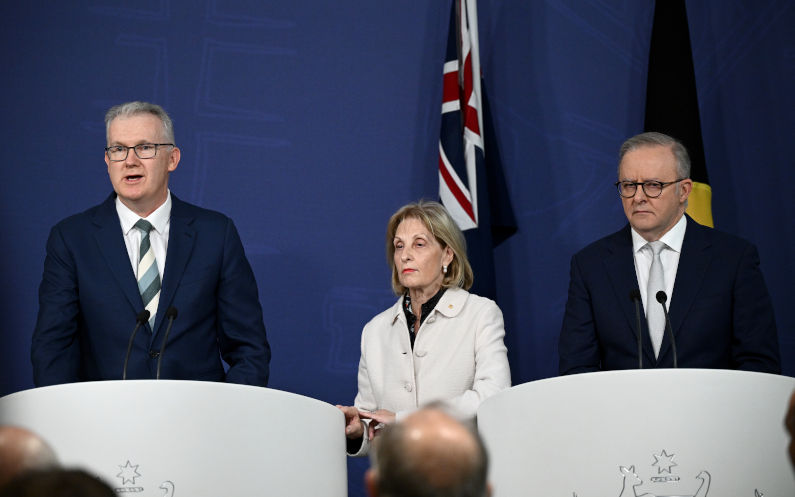Antisemitism, free speech and a dangerous redefinition: How one envoy is rewriting the rules
July 19, 2025
The recent synagogue fire in Melbourne is being used as a blueprint for sweeping changes to Australian law.
Under the guise of combatting antisemitism, new laws risk eroding core democratic principles, silencing legitimate dissent and redefining free speech as hate speech.
At the heart of this campaign is a push to adopt a controversial and deeply flawed definition of antisemitism, one that conflates Zionism with Judaism and equates criticism of Israeli state policy with racial or religious hate. This conflation, long challenged by legal experts, human rights advocates and even Jewish scholars, threatens to make any critical commentary about Israel a prosecutable offence.
The community ought to be concerned as we are now facing the prospect of a national database labelling individuals as antisemitic, not for inciting hatred or violence, but for expressing dissenting political views. But this isn’t policy, it’s a Kafkaesque nightmare.
The figure leading this charge, Jillian Segal, Australia’s special envoy to combat antisemitism, is not an elected official. Yet she is demanding sweeping legal and institutional changes that were neither debated in Parliament nor put to a vote.
Australians were asked to vote on same-sex marriage. They were asked to vote on an Indigenous Voice to Parliament. But on the question of whether speech critical of a foreign state should be criminalised, we are not asked. There is no referendum, no transparency and no democratic process. Under what constitutional authority or other legal authority is Segal acting?
Her proposals would expand powers over universities, workplaces and digital platforms, coercing institutions into adopting an unchallenged definition of antisemitism that has been condemned by the very experts who authored it.
Kenneth Stern, the lead drafter of the International Holocaust Remembrance Alliance definition, is one of its most vocal critics. In an interview on ABC Radio National on 14 July 2025, he called the application of the IHRA definition in this way “a disaster” for democracy.
“This definition is being weaponised to go after pro-Palestinian speech,” Stern warned, likening the current climate to McCarthyism. “It blinds us to how antisemitism actually works.”
When ABC Radio put this criticism to Segal on 11 July, her response was dismissive: “That train has moved on… and Kenneth Stern has been left behind.” In other words, democracy must make way for political expediency, even if that means silencing Jewish critics and violating free expression.
Another concern is there has been no consultation with legal experts, no engagement with civil society and no attempt to include the voices of the Semitic communities, being Jewish, Arab, or otherwise, whose experience is essential in understanding antisemitism in its true form. But Segal’s report isn’t about safety. It’s about censorship and control.
Let’s be clear, real safety for Jewish Australians, or anyone else, will not come from silencing political debate or criminalising opposition to apartheid or war crimes being committed overseas. True safety lies in a democracy where all people, regardless of race, religion, or political view, are protected equally by the law.
And while we’re here, whatever happened to the special envoy to combat Islamophobia? Hate in all forms must be addressed, not selectively based on ideology or geopolitics.
Justice Stewart puts the censors on notice
The Australian Federal Court’s decision in Wertheim v Haddad [2025] FCA 720 made it clear: Zionism is a political ideology, not a religion, and criticism of it is not antisemitic. Justice Stewart stated:
“The ordinary, reasonable listener would understand that not all Jews are Zionists or support the actions of Israel in Gaza and that disparagement of Zionism constitutes disparagement of a philosophy or ideology and not a race or ethnic group. Needless to say, political criticism of Israel, however inflammatory or adversarial, is not by its nature criticism of Jews in general or based on Jewish racial or ethnic identity.”
This ruling should have ended the debate. Instead, it’s being ignored by those pushing an agenda of repression.
Segal’s actions and the government’s silence mark an extraordinary overreach. Australians must ask, who decides what we can say? Who defines what is hate and what is dissent? And who benefits from this silencing?
This is not just about one envoy or one definition. It’s about whether Australians will allow unelected figures to dictate public discourse, criminalise free speech and reshape our institutions in secret.
Segal is contributing to an increasingly dark and dangerous time. But we must push back. We must stand united, across political lines, across faiths, across communities, to defend freedom of speech, the democratic process and call for equal and consistent treatment for all under the law.
The views expressed in this article may or may not reflect those of Pearls and Irritations.

